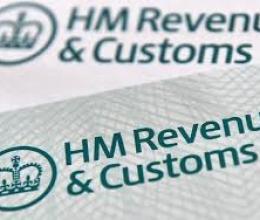Publication featured in: BBC Sport, Mail Online, CityAM, The i
Tax investigations into UK football clubs have recovered £124.8m in unpaid tax in the past year*, more than doubling the previous year’s total of £58.7m.
Recent examples of HMRC investigations include both Manchester United and Newcastle United, who stated in their most recent financial accounts** that they are currently subject to investigations by HMRC.
Additionally, former Manchester City boss and Premier League winner Manuel Pelligrini was fined £343,000 in 2022 for allegedly evading over £800,000 in tax.
Underpayment of tax by football clubs is not just a problem in the UK. In Italy, clubs from the top-flight Serie A have recently been presented with tax bills totalling almost €500m by the Italian Revenue Agency, €50m of which is owed by Inter Milan.
Cristiano Ronaldo was fined €19m in 2019 by the Spanish Tax Agency, who also fined Lionel Messi €252,000 in 2017, in two cases of high-profile footballers being targeted by tax authorities.
Suspension by HMRC or FCA and criminal offences like tax evasion are now grounds for automatic disqualifications for owning or running a Premier League football club, following changes in March***.
A major area HMRC suspects clubs of underpaying tax in is National Insurance on payments on agents’ fees. It suspects clubs claim that just half of the fee is classed as a benefit in kind when it is usually a majority. HMRC now requires clubs to report the agent’s fees on a P11D and National Insurance is paid, with the player paying tax on the benefit.
Another area of investigation is image rights payments, which are often made by clubs to a player’s company, allowing them to avoid paying National Insurance. HMRC suspects that clubs are paying intentionally overvalued fees for image rights, effectively paying disguised remuneration and evading National Insurance.
HMRC are also investigating benefits in kind, where a club pays for perks like flights and hotel rooms for players and their families. These are frequently going undeclared as payments to players, meaning that clubs may underpay National Insurance on the value of those benefits.
Elliott Buss, partner in our Newport office and a specialist in the taxation of sports clubs, says: “HMRC is really cracking down on the football industry to recover what it sees as a significant amount of unpaid tax. Football clubs are a subject of particular concern and HMRC now have these clubs’ tax affairs in their sights.”
“The growing proportion of agents’ fees being paid by clubs is drawing the attention of the taxman to the possibility that not all tax due on these payments is being paid.”
“Football clubs should seek professional advice on tax law compliance in order to avoid what can be lengthy and costly HMRC investigations.”
*Year end March 31 2023, from HMRC
**Manchester United’s accounts - February 2023; Newcastle United’s accounts - April 2023
***Press release from the Premier League, 30th March 2023




